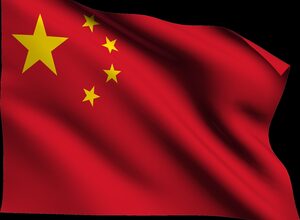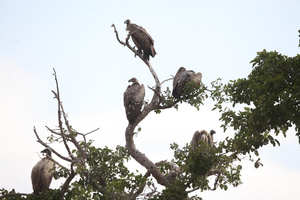Now, companies to use data from genetic resources to contribute to biodiversity fund

Rome, Feb 25 (IANS) In a major development under the Convention on Biological Diversity (CBD), the Cali Fund for the Fair and Equitable Sharing of Benefits from the use of Digital Sequence Information on Genetic Resources (DSI) — the Cali Fund, which will receive contributions from private sector entities making commercial use of DSI, was launched on Tuesday.
Companies making commercial use of data from genetic resources in nature in a range of lucrative industries are now expected to contribute a portion of their revenue to the fund.
The Cali Fund, launched in the sidelines of the second day of the resumed session of COP16 of the CBD at the headquarters of the Food and Agriculture Organisation of the United Nations (FAO), will mobilise new streams of funding for biodiversity action worldwide, in support of the three objectives of the CBD: the conservation of biological diversity, the sustainable use of its components, and the fair and equitable sharing of the benefits arising from the use of genetic resources.
Recognising their role and contributions as custodians of biodiversity, 50 per cent of the resources of the Cali Fund will be allocated to the self-identified needs of indigenous people and local communities, including the women and the youth.
The disbursements of the fund will also serve to boost the implementation of the Kunming-Montreal Global Biodiversity Framework (KMGBF), the universal masterplan to halt and reverse biodiversity loss adopted under the CBD, notably by supporting the delivery of National Biodiversity Strategies and Action Plans (NBSAPs) by developing country parties, and by bolstering scientific research on biodiversity and bridging existing gaps in the way countries generate, access, use, analyse and store DSI.
In line with decision 16/2, which parties to the CBD adopted on November 2, 2024, at COP16 in Colombia, the Cali Fund will be hosted by the Multi-Partner Trust Fund Office (MPTFO) in a partnership between the United Nations Development Programme (UNDP) and the United Nations Environment Programme (UNEP), and with the Secretariat of the Convention on Biological Diversity (CBD) hosting the Cali Fund Secretariat.
A memorandum of understanding reflecting this institutional arrangement was signed during the launch ceremony.
“I commend the CBD Secretariat for the hard work that went into preparing the Cali Fund launch a mere four months after the adoption of the decision operationalising it,” said Susana Muhamad, the COP16 President.
“Colombians are proud that this major achievement under the CBD saw the light of day at La COP de la gente in Cali.”
“Today’s launch is the culmination of multilateralism that delivers,” said the UNEP Deputy Executive Director Elizabeth Mrema.
“The ball is now in the court of businesses around the world. Those who pay into the fund will go down in history as pioneers and will reap the benefits as the public increasingly recognises the importance of giving back to nature.”
Large companies and other major entities benefiting commercially from the use of DSI (digital sequence information) are expected to contribute a portion of their profits or revenues in sectors and subsectors highly dependent on the use of DSI, including pharmaceuticals, cosmetics, plant and animal breeding and agricultural biotechnology, industrial biotechnology, laboratory equipment associated with the sequencing and use of digital sequence information on genetic resources, and information, scientific and technical services related to digital sequence information on genetic resources, including artificial intelligence.
Academic, public databases, public research institutions and companies operating in the concerned sectors but not relying on DSI are exempt of contributions to the Cali Fund.
–IANS
vg/khz




